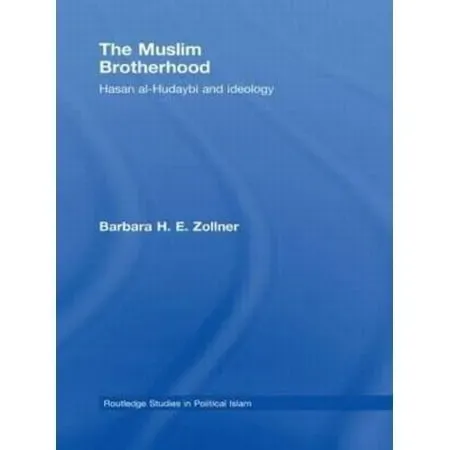The Muslim Brotherhood in Canada has garnered significant attention in recent years as reports reveal a complex network influenced by both the organization and Qatar. Originating from Egypt, the Muslim Brotherhood advocates for establishing an Islamic caliphate, raising concerns about its potential impact on Canadian society. Engaging in various activities, the Muslim Association of Canada claims to operate independently and is the largest grassroots charitable Muslim organization in the country. Despite their denials of any direct connection to the Muslim Brotherhood, the discourse surrounding Islamic organizations in Canada continues to stir debate within Canadian politics and Islam. As discussions unfold, the implications of the Brotherhood’s influence on Canadian values and democracy remain a focal point for many observers.
Recent developments highlight the extensive presence of the Muslim Brotherhood network across Canada, drawing increased scrutiny regarding its affiliations and activities. This undercover influence, often linked with Qatari interests, poses intriguing questions about the dynamics of Islamic entities in Canadian society. While the Muslim Association of Canada promotes charitable efforts and claims a grassroots approach, its ties to the broader context of the Brotherhood’s advocacy for an Islamic order cannot be overlooked. The intersection of faith and politics in this discussion creates a multifaceted narrative about the role of various Islamic organizations in shaping Canadian public life. As the dialogue evolves, understanding these connections can illuminate the broader implications for multiculturalism and governance in Canada.
The Growing Influence of the Muslim Brotherhood in Canada
The Muslim Brotherhood has made significant inroads in Canada, establishing various organizations that influence the Muslim community and Canadian society at large. This influence is particularly evident in cities with sizeable Muslim populations, where they have cultivated a network that connects like-minded individuals and groups. The emergence of these associations raises important questions regarding their ideological underpinnings and affiliations, especially as concerns arise about antisemitism and political extremism linked to Brotherhood ideologies.
In recent years, the conversation surrounding the Muslim Brotherhood has intensified in the context of Canadian politics and Islam. Many observers note that while the Brotherhood has been associated with various charitable activities, such as those conducted by the Muslim Association of Canada, its overarching aims often align with the promotion of an Islamic caliphate. This duality presents a complex dynamic, where community service efforts may be juxtaposed against the broader agenda of political Islam. Thus, understanding the intricate relationship between these organizations and their political aspirations is crucial for policymakers and the public alike.
Qatar’s Influence on Canadian Islamic Organizations
Qatar’s involvement in Canada has drawn scrutiny, particularly concerning its financial support for various Islamic organizations, including those affiliated with the Muslim Brotherhood. This funding raises pressing questions about the motivations behind Qatari investments and the potential for ideological exportation that align with the Brotherhood’s agenda. Such interactions suggest that Qatar is not merely a distant player but a significant actor shaping the landscape of Canadian Islam through financial means.
The implications of Qatar’s influence extend beyond financial support. By backing certain organizations, Qatar may inadvertently empower voices within the Muslim community that advocate for agendas at odds with the values of Canadian society. As Islamic organizations in Canada continue to navigate their roles, the intertwined relationship with foreign powers like Qatar warrants close examination. In the context of Canadian politics, this dynamic may influence broader discussions about integration, citizenship, and community identity, necessitating a balanced approach to safeguarding democratic principles.
Exploring the Role of the Muslim Association of Canada
The Muslim Association of Canada (MAC) has positioned itself as a leading grassroots charitable organization, yet its alleged ties to the Muslim Brotherhood have complicated its public perception. While MAC asserts its commitment to community service—demonstrated by initiatives such as distributing meals to the needy—it faces scrutiny regarding its ideological connections. Critics often question whether MAC can truly distance itself from the contentious narratives associated with the Brotherhood, particularly when examining its leadership and funding sources.
Addressing these concerns requires transparency and community engagement from organizations like MAC. It becomes imperative for them to clarify their positions and ensure their activities align with Canadian values. By audit their operations, fostering interfaith dialogue, and actively participating in the broader Canadian political discourse, they can work towards dissociating from the negative stigmas surrounding the Muslim Brotherhood, ultimately strengthening their role within Canadian society.
The Intersection of Canadian Politics and Islam
In Canada, the interplay between Islam and politics is increasingly noticeable, especially as Islamic organizations seek to engage with policymakers. Many groups, including those connected to the Muslim Brotherhood, strive to assert their influence within political circles. This engagement is characterized by advocacy efforts, public relations campaigns, and community mobilization activities intended to represent Muslim Canadians on various issues.
However, these interactions are not without challenges. The growing scrutiny surrounding Islamic organizations’ ties to foreign entities like Qatar has led to heightened vigilance concerning their activities within Canadian politics. Policymakers must navigate this landscape carefully, balancing the need to support minority communities while addressing concerns about extremism and foreign influence. This dialogue is crucial to fostering a cohesive society where all voices can be heard, yet remain representative of Canadian values.
Concerns Over Antisemitism within Islamic Organizations
Reports have highlighted troubling instances of antisemitic sentiments within certain factions of the Muslim Brotherhood, which raise significant concerns for their operations in Canada. These ideologies, often propagated through obscure channels within international networks, can seep into local organizations, affecting community cohesion and public trust. The need for vigilant monitoring and counter-acting these narratives is paramount, especially as they may conflict with Canada’s commitment to multiculturalism and diversity.
Addressing antisemitism effectively requires a robust response from Islamic organizations, community leaders, and policymakers. Initiatives aimed at educating community members about tolerance, respect, and the importance of combating hate speech should be prioritized. By promoting dialogue surrounding these sensitive issues and actively working to disassociate from extremist narratives, organizations can play a pivotal role in fostering a safer and more inclusive environment for all Canadians.
Charity Work and Political Implications
Charitable endeavors often serve as a bridge between Islamic communities and wider Canadian society. Organizations like the Muslim Association of Canada play a crucial role in this aspect, striving to provide meaningful assistance to those in need. However, the political implications of these charitable activities cannot be overlooked. Critics argue that charitable work can also function as a facade, potentially hiding ideological motives, particularly when connected to larger networks such as the Muslim Brotherhood.
Engaging the public in this discourse is essential to demystifying the intersection of charity and politics within the Muslim community. By showcasing the genuine philanthropic efforts of organizations while being transparent about their ideological straightforwardness, the narrative can shift towards one of genuine service rather than political maneuvering. This approach not only enhances community trust but also facilitates better integration of Muslim Canadians into the broader fabric of society.
The Future of Islamic Organizations in Canada
As Canada grapples with the complexities of multiculturalism, the future of Islamic organizations will play a crucial role in shaping the national dialogue on inclusion and representation. With organizations like the Muslim Brotherhood continuing to exert influence, there is a pressing need for reforms within these groups to assert their commitment to Canadian values of democracy and equality. The evolving landscape of Islamic organization must reflect a dedication to progress, steering clear of ideologies that may conflict with the fabric of Canadian society.
Looking ahead, collaboration between Islamic organizations and other community groups will be essential in fostering understanding and enhancing social cohesion. By actively participating in initiatives that promote intercultural exchange, these organizations can redefine their identities in ways that resonate with the values of contemporary Canada. This cooperative approach will not only benefit the Muslim community but also strengthen the overall societal structure, demonstrating that diversity can indeed be a source of strength.
Addressing Extremism: The Path Forward
The challenge of addressing extremism within Islamic organizations is pressing, especially as networks linked to Qatar and the Muslim Brotherhood are scrutinized. A nuanced approach is required that distinguishes between radical and moderate elements within these groups. Promoting moderate discourses and supporting the voices that advocate for peaceful coexistence can pave the way toward mitigating the influence of extremist ideologies.
The path forward includes ensuring that Islamic organizations engage in initiatives that underscore their commitment to peace, tolerance, and respect for Canadian laws. Building coalitions with other faith-based groups and civil society actors can foster a united front against extremism. By collaboratively addressing the challenges posed by radicalization, these organizations can affirm their place within the Canadian mosaic while contributing positively to the national narrative.
Navigating Cultural Identity in a Globalized World
Cultural identity plays a significant role in how Islamic organizations present themselves in a globalized society like Canada. The intersection of local and global influences poses both challenges and opportunities for these organizations. While they may draw upon international narratives, there is a critical need for them to foster a distinctly Canadian identity that embraces shared values and aspirations.
As the Muslim community in Canada continues to evolve, Islamic organizations must consciously navigate their cultural identity, balancing heritage with the need for integration. By engaging with Canadian cultural norms while celebrating their own diverse backgrounds, these groups can contribute to a richer, more inclusive national identity. This balance is vital in promoting mutual understanding and respect, which are cornerstones of a cohesive and harmonious society.
Frequently Asked Questions
What is the relationship between the Muslim Brotherhood and Qatar’s influence in Canada?
The Muslim Brotherhood has established an extensive network in Canada, reportedly supported by Qatar. These connections raise concerns about their activities and influence on Canadian politics and society, especially considering the Brotherhood’s advocacy for an Islamic caliphate.
Are the Muslim Association of Canada and the Muslim Brotherhood connected?
The Muslim Association of Canada, the largest grassroots Canadian Muslim charitable organization, has publicly denied any affiliation with the Muslim Brotherhood. Despite this, their role and influence in Canadian Islamic organizations are often scrutinized due to rumored connections.
How does the Muslim Brotherhood impact Islamic organizations in Canada?
The presence of the Muslim Brotherhood in Canada has implications for various Islamic organizations, including the Muslim Association of Canada. The group’s ideologies may influence the activities and public perceptions of these organizations, potentially leading to debates regarding their involvement in Canadian politics.
What concerns have been raised regarding the Muslim Brotherhood’s connection to Canadian politics?
Concerns surrounding the Muslim Brotherhood in Canada primarily focus on its alleged connections to Qatar and its influence on political discourse. Critics argue that such connections may promote ideologies contrary to Canadian values, raising alarms in the context of national security.
What role do Islamic organizations in Canada play in relation to the Muslim Brotherhood?
Islamic organizations in Canada, like the Muslim Association of Canada, face scrutiny due to potential connections to the Muslim Brotherhood. The operations of these organizations are often assessed within the framework of their influences on community service versus alleged political agendas linked to the Brotherhood.
Why is the Muslim Brotherhood a topic of interest regarding Canadian society?
The Muslim Brotherhood is under scrutiny in Canada due to its historical advocacy for an Islamic caliphate and alleged antisemitism. Its influence extends beyond community support to broader implications in politics and societal debates about the role of Islamic organizations in Canada.
What initiatives have the Muslim Brotherhood pursued in Canada?
In Canada, the Muslim Brotherhood has been linked to various initiatives, including charitable works through organizations like the Muslim Association of Canada. However, their broader political goals and connections, particularly with Qatar, generate significant concern among observers of Canadian politics.
| Key Point | Details |
|---|---|
| Origins | The Muslim Brotherhood originated in Egypt and advocates for an Islamic caliphate. |
| Network in Canada | The Muslim Brotherhood and Qatar have established a significant network across Canada. |
| Allegations | The organization has promoted antisemitic conspiracies and raised concerns about its influence in Canadian society. |
| Community Engagement | In 2020, a member of the Muslim Association of Canada distributed meals to the needy, although they deny any ties to the Brotherhood. |
| Political Concerns | The connections between the Muslim Brotherhood, Qatar, and various organizations in Canada have raised concerns in political discussions. |
Summary
The Muslim Brotherhood in Canada has become a topic of significant discussion due to its extensive network linked with Qatar. Originating from Egypt, this organization raises various concerns regarding its influence on Canadian society and politics, particularly noted for promoting antisemitic views. Although groups like the Muslim Association of Canada engage positively with the community, their disavowal of connections to the Brotherhood highlights the complexity of this issue. Overall, the influence and activities of the Muslim Brotherhood in Canada warrant ongoing scrutiny and dialogue.



